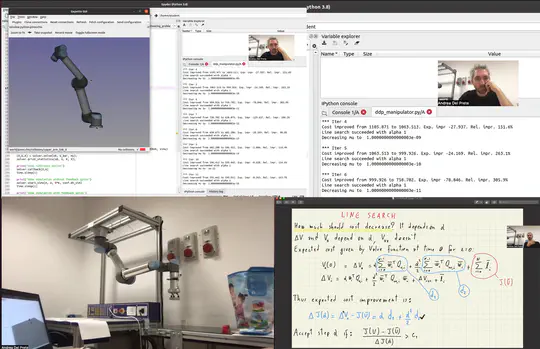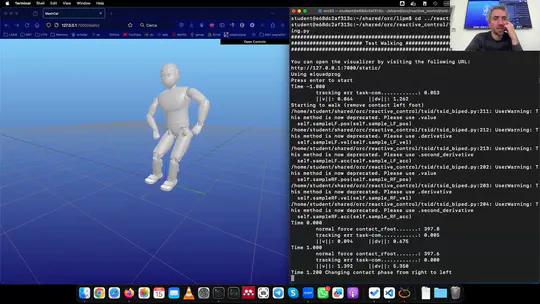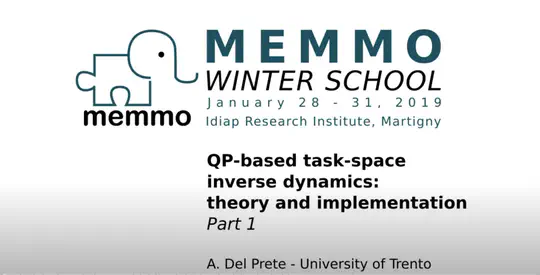Biography
Since 2022 I have been an associate professor in the Industrial Engineering Department of the University of Trento (Italy), where I am part of the Interdepartmental Robotics Lab (IDRA). From 2019 to 2021 I had been a tenure-track assistant professor (RTD-B) in the same department, where I teach optimal control and reinforcement learning for robotics, and computer programming in C++.
In 2018 I had been a research scientist in the Movement Generation and Control group at the Max-Planck Institute for Intelligent Systems (Tübingen, Germany), under the lead of Ludovic Righetti.
From 2014 to 2017 I had been an associated researcher in the Gepetto team (LAAS-CNRS, Toulouse), where I have been working with the humanoid robot HRP-2. My main collaborations were with Nicolas Mansard, Olivier Stasse, Steve Tonneau and Justin Carpentier.
Before going to LAAS I had spent four years (3 of PhD + 1 of post-doc) at the Italian Institute of Technology (IIT, Genova, Italy), where I had been working with Lorenzo Natale and Francesco Nori on the iCub humanoid robot.
I am currently serving as an Associate Editor for IEEE Robotics and Automation Letters (since 2020) and for IEEE Transactions on Robotics (since 2024).
- Robot Control
- Reinforcement Learning
- Trajectory Optimization
- Safety Certificates
- Numerical Algorithms
PhD in Robotics, 2013
Italian Institute of Technology
MEng in Computer Engineering, 2009
University of Bologna
BSc in Computer Engineering, 2006
University of Bologna
Experience
Courses
PhD Students
Recent Publications
Contact
- andrea.delprete@unitn.it
- 0039 0461 281915
- Via Sommarive 9, Trento, 38123
- Enter the building “Povo 2”, take the stairs to the 1st floor, go left until the end of the corridor.


